 Comics about mathematics, science, and the student life.
Comics about mathematics, science, and the student life.
Reasonable Assumptions
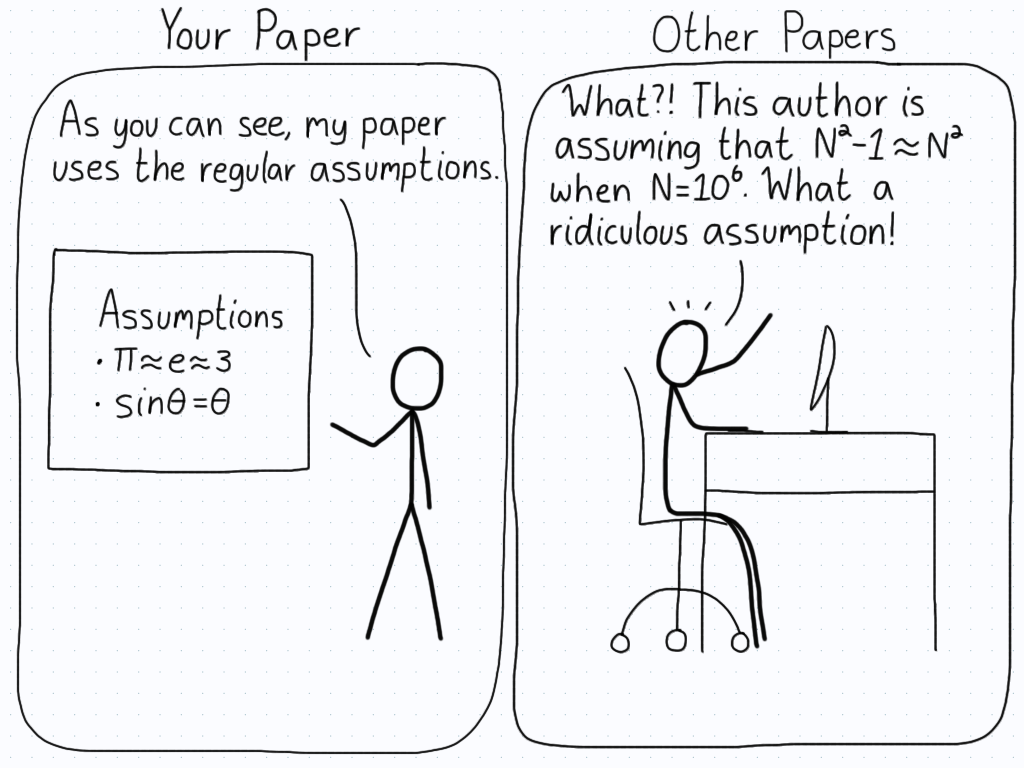
I just try to be unreasonable all the time. Much easier to be consistent.
07 Feb 2020Typographical Miss

As you might imagine, this is definitely based on a true story. I mean come on, the problem was identical to the previous, save one number.
05 Feb 2020Question Period
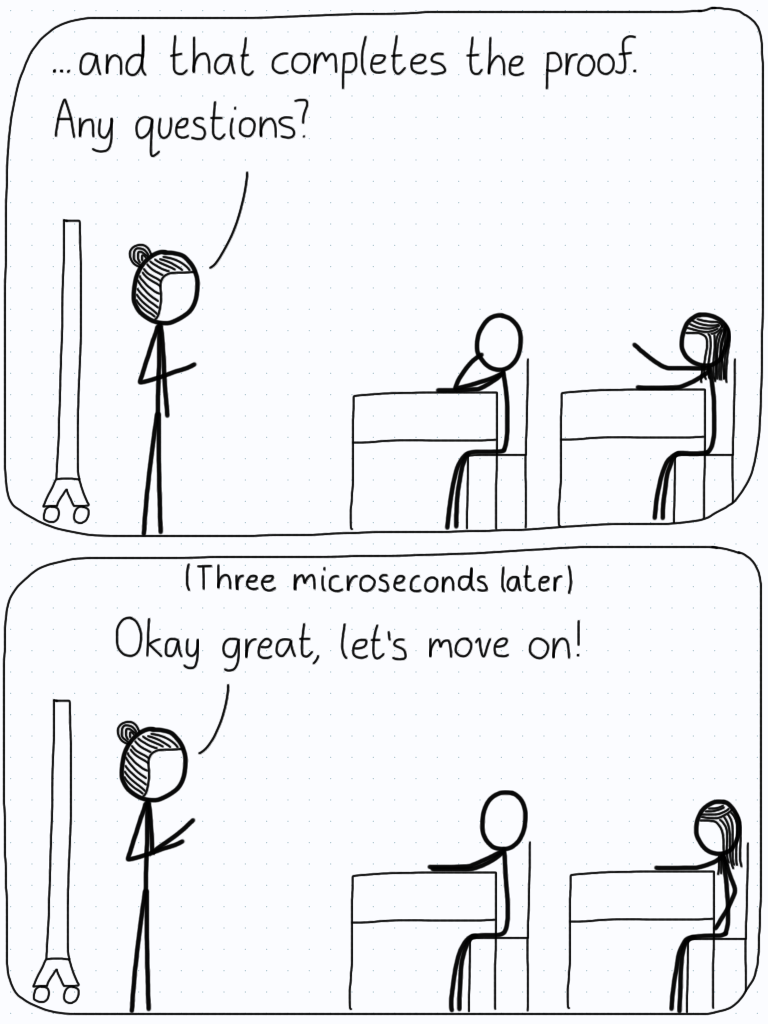
“You just told me I had to give the students a chance to ask questions, not that they actually needed to!”
03 Feb 2020Usual Approximations
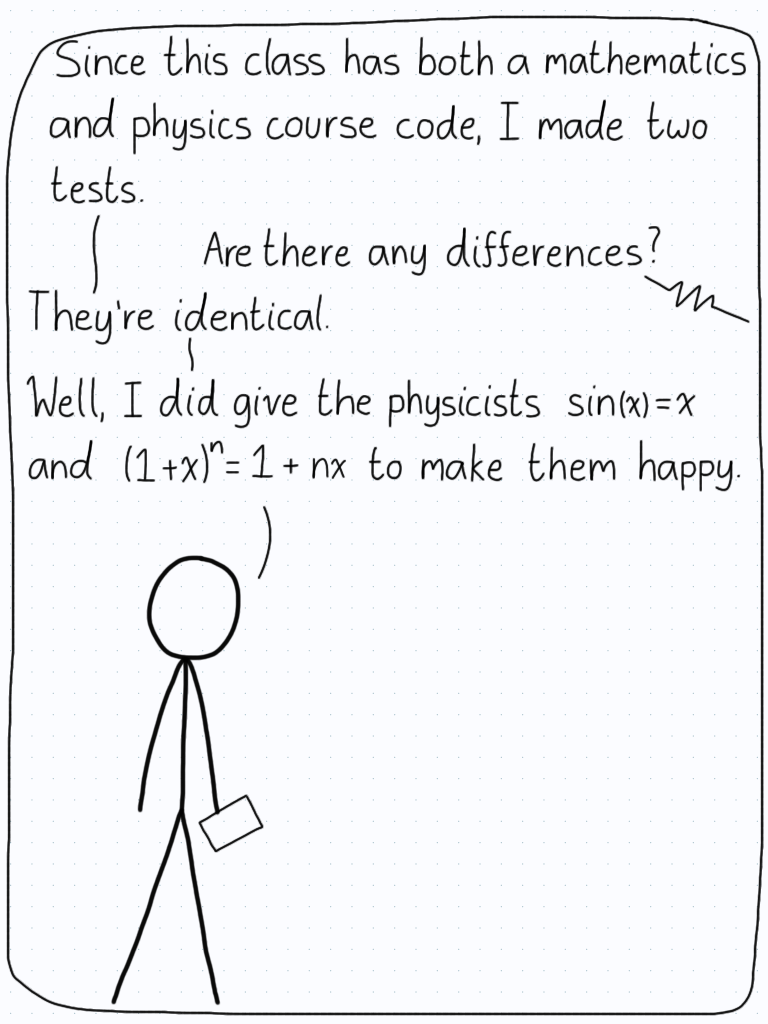
“Basically, I know you mathematicians enjoy solving the more general case, so I figured you would like the challenge!”
31 Jan 2020Data Generators
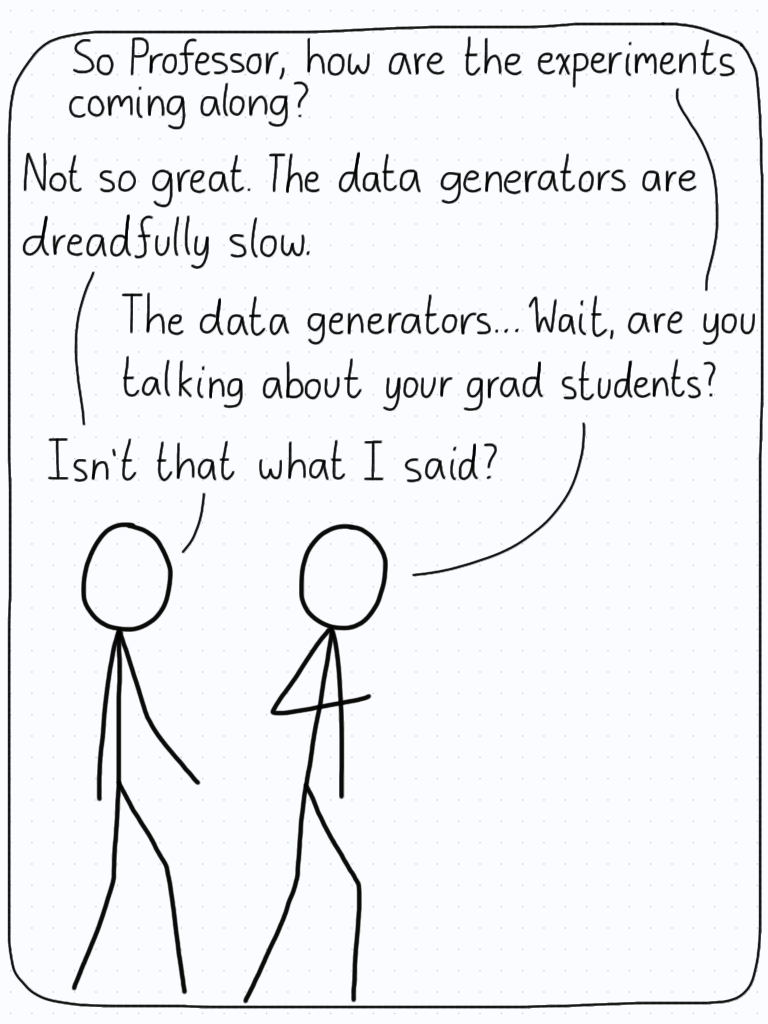
“I don’t think that’s the correct term to use-“
“Okay fine, the data farmers are slow. Happy now?”
29 Jan 2020Temporary Amnesia

The difficultly with proofs at first is that you’re required to show things that feel obvious. A good proof should provide an explanation for something which isn’t clear. Unfortunately, when you start proving divisibility rules, there’s a limit to how much insight you get from the proof.
27 Jan 2020Semester Cycle
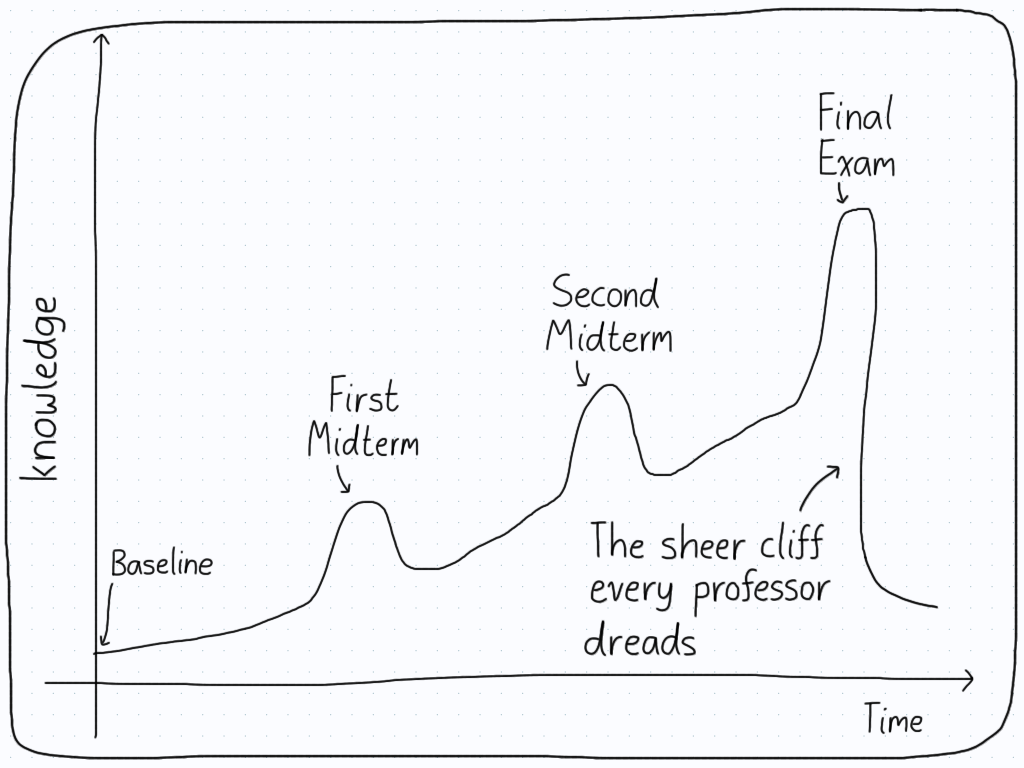
This is something I worry about a lot when learning. It’s why I try to teach and write about the topics I’m learning in order to push away that cliff.
24 Jan 2020Toy Theory
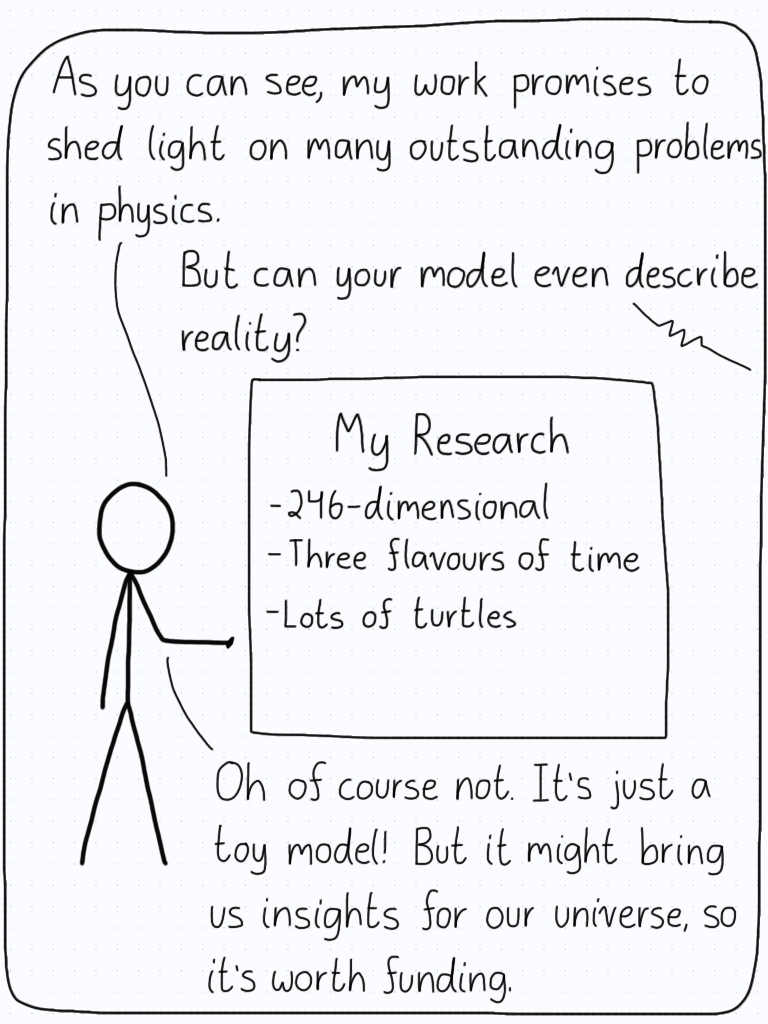
I understand the need for basic research, but I sometimes wonder how many different toy theories and models we really need.
22 Jan 2020Rogue

The eternal struggle: teacher finds new problems, and students react by combing every centimetre of the web for the solutions.
20 Jan 2020Simple Result

As one of my professors used to say, “When you’re solving a problem, it doesn’t matter if your proof is messy, convoluted, or entirely unnecessary. If you’re using logic correctly, then it’s fine.”
17 Jan 2020